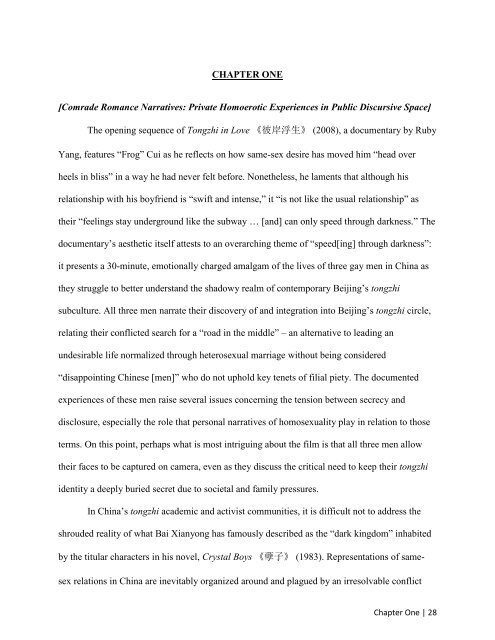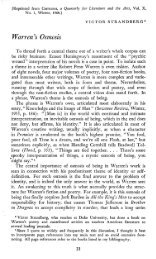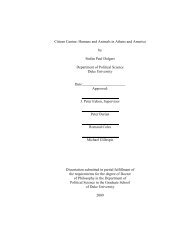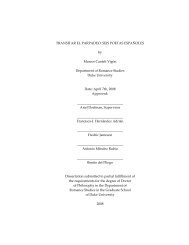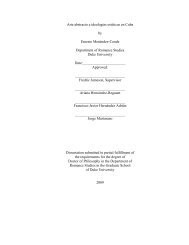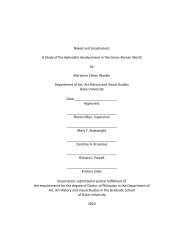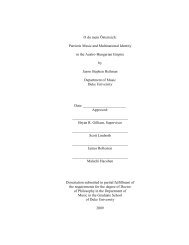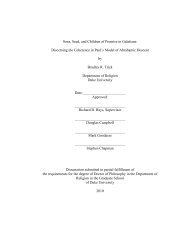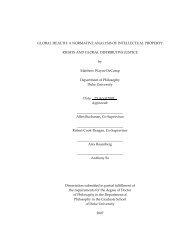View/Open - DukeSpace - Duke University
View/Open - DukeSpace - Duke University
View/Open - DukeSpace - Duke University
Create successful ePaper yourself
Turn your PDF publications into a flip-book with our unique Google optimized e-Paper software.
CHAPTER ONE<br />
[Comrade Romance Narratives: Private Homoerotic Experiences in Public Discursive Space]<br />
The opening sequence of Tongzhi in Love 《 彼 岸 浮 生 》 (2008), a documentary by Ruby<br />
Yang, features “Frog” Cui as he reflects on how same-sex desire has moved him “head over<br />
heels in bliss” in a way he had never felt before. Nonetheless, he laments that although his<br />
relationship with his boyfriend is “swift and intense,” it “is not like the usual relationship” as<br />
their “feelings stay underground like the subway … [and] can only speed through darkness.” The<br />
documentary’s aesthetic itself attests to an overarching theme of “speed[ing] through darkness”:<br />
it presents a 30-minute, emotionally charged amalgam of the lives of three gay men in China as<br />
they struggle to better understand the shadowy realm of contemporary Beijing’s tongzhi<br />
subculture. All three men narrate their discovery of and integration into Beijing’s tongzhi circle,<br />
relating their conflicted search for a “road in the middle” – an alternative to leading an<br />
undesirable life normalized through heterosexual marriage without being considered<br />
“disappointing Chinese [men]” who do not uphold key tenets of filial piety. The documented<br />
experiences of these men raise several issues concerning the tension between secrecy and<br />
disclosure, especially the role that personal narratives of homosexuality play in relation to those<br />
terms. On this point, perhaps what is most intriguing about the film is that all three men allow<br />
their faces to be captured on camera, even as they discuss the critical need to keep their tongzhi<br />
identity a deeply buried secret due to societal and family pressures.<br />
In China’s tongzhi academic and activist communities, it is difficult not to address the<br />
shrouded reality of what Bai Xianyong has famously described as the “dark kingdom” inhabited<br />
by the titular characters in his novel, Crystal Boys 《 孽 子 》 (1983). Representations of samesex<br />
relations in China are inevitably organized around and plagued by an irresolvable conflict<br />
Chapter One | 28


